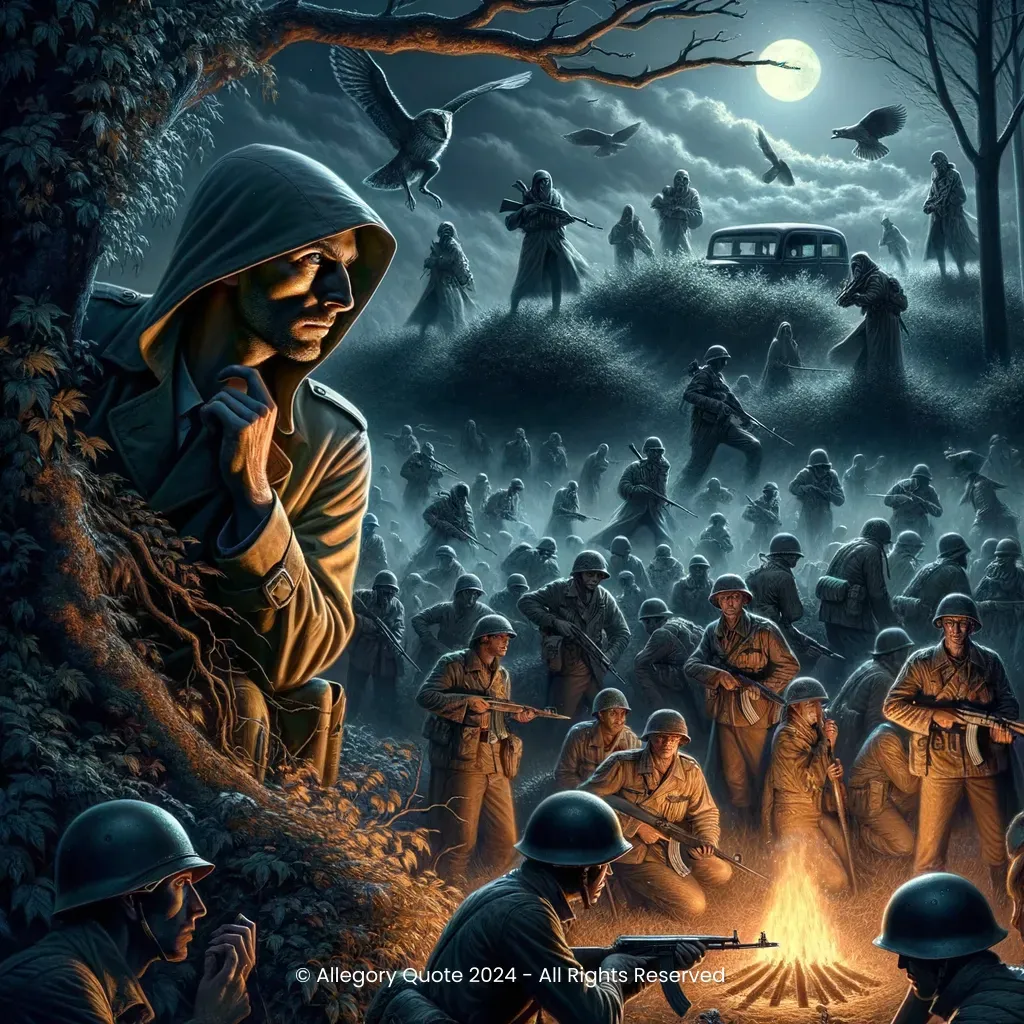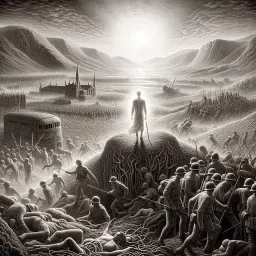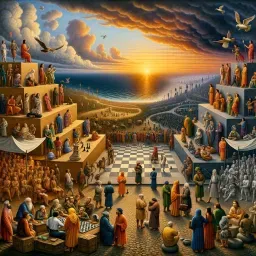All warfare is based on deception

0
0
0
0
- Meaning
- This statement means that deceptive tactics are fundamental to warfare. In Sun Tzu's view, misleading the enemy about your intentions, capabilities, or movements can provide a strategic advantage. This could involve false information, ambushes, or disguising one's forces. The greater the enemy's confusion, the stronger your position.
- Allegory
- This image composition uses key elements to embody the essence of the phrase: the moonlit setting suggests a time for covert actions, while the cunning general hidden in foliage represents the master of deception. The confused enemy soldiers illustrate the efficacy of deceptive tactics. The false campfires and dummy soldiers are direct symbols of military deception. Predatory animals like wolves signify the lurking danger and strategic advantage hidden in deception, while vigilant owls add an element of foresight and tactical planning. Together, these elements evoke the strategic and psychological depth behind the phrase.
- Applicability
- In personal life or business, this concept translates to the idea that strategy and planning should often include elements of surprise or misdirection to achieve goals. For example, in negotiations, one might downplay their position to gain a better deal, or in competitive business, companies might hide their R&D developments to surprise competitors.
- Impact
- This phrase has had considerable impact historically and culturally. It has guided military strategy for centuries and has been adopted in fields beyond warfare, such as business, sports, and personal development. It has inspired countless leaders to incorporate deception as a strategic element, emphasizing the importance of mental over physical strength.
- Historical Context
- Sun Tzu wrote "The Art of War" during the late Spring and Autumn Period or early Warring States Period of ancient China (approximately 5th century BC). It was a time marked by continuous conflict and strategizing among warring states, making Sun Tzu's treatise highly relevant and timely for its audience.
- Criticisms
- Criticisms of this phrase could arise from ethical concerns. Deception, by its nature, can erode trust and lead to moral dilemmas. In modern contexts, such strategies may be seen as unethical or manipulative, particularly in business and personal relationships. Some argue that integrity and transparency build longer-lasting and more stable relationships and successes.
- Variations
- This phrase has been interpreted differently across various cultures. For instance, in Western business practices, the concept has been adapted to competitive strategy, where market positioning and branding often employ tactics of misdirection. In Eastern cultures, especially where Sun Tzu’s influence is strong, it integrates more holistically into broader strategic thinking and philosophy.
-

Genius is one percent inspiration, ninety-nine percent perspiration.
-

That government is best which governs least.
-

With great power comes great responsibility.
-

In any moment of decision, the best thing you can do is the right thing, the next best thing is the wrong thing, and the worst thing you can do is nothing.
-

The public service is a public trust.
-

Jealousy is the grave of affection.
-

Every journey begins with a single step.
-

In the midst of chaos, there is also opportunity.
-

Keep your friends close, but your enemies closer.
No Comments